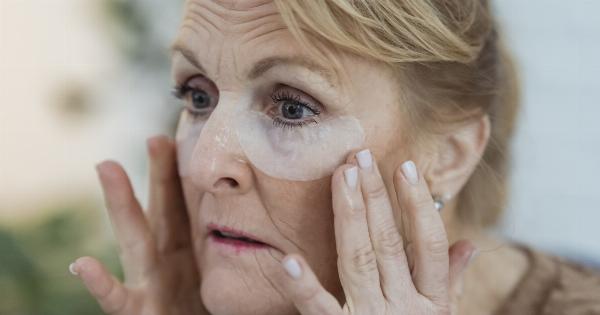As we age, our bodies undergo a variety of changes both internally and externally. One of the most visible signs of aging is the decline in the quality and appearance of our skin.
Wrinkles, sagging, and loss of elasticity become more prominent, causing many individuals to seek solutions in order to maintain a youthful appearance.
The Role of Collagen in Skin Health
Collagen, a protein found abundantly throughout the body, plays a crucial role in maintaining the health and vitality of our skin.
It provides structural support, elasticity, and strength, making up around 75-80% of the dermis, the deep layer of the skin. Collagen also aids in the renewal and regeneration of skin cells, giving rise to a smooth and healthy complexion.
The Aging Process and Collagen Breakdown
Unfortunately, as we age, the production of collagen in our bodies diminishes. This decline typically begins in our late 20s and becomes more pronounced in the following years.
Consequently, the breakdown of collagen outpaces its synthesis, leading to the visible signs of aging such as wrinkles, fine lines, and sagging skin. Additionally, factors such as exposure to ultraviolet (UV) rays, pollution, and lifestyle choices like smoking can further accelerate collagen degradation.
The Collagen Revolution
In recent years, there has been a significant shift in the way individuals approach anti-aging skincare. Gone are the days of relying solely on invasive procedures or topical creams that claim to work miracles.
Instead, a revolution centered around collagen has taken the beauty and wellness industry by storm.
Benefits of Collagen Supplementation
The growing popularity of collagen supplements stems from their ability to address the root cause of skin aging – the decline in collagen production.
By providing the body with the necessary amino acids and nutrients to produce collagen, these supplements help support the skin’s natural regenerative processes.
Additionally, collagen supplementation offers a range of benefits beyond just improving skin health. It has been found to promote strong and healthy hair, strengthen nails, and improve joint health.
Some studies have even suggested that collagen supplements may aid in weight loss and muscle recovery, making it a sought-after supplement for overall well-being.
Types of Collagen Supplements
Collagen supplements come in various forms, including powders, capsules, and liquids. The most common types are:.
1. Type I Collagen
Type I collagen is the most abundant form of collagen in our bodies. It is responsible for providing structure and support to the skin, bones, tendons, and ligaments.
This type of collagen is often used in supplements targeted at improving skin elasticity and reducing wrinkles.
2. Type II Collagen
Type II collagen primarily focuses on joint health. It is essential in maintaining the integrity and flexibility of the cartilage that cushions our joints.
Therefore, supplements containing type II collagen are popular among individuals suffering from joint pain and arthritis.
3. Type III Collagen
Type III collagen works alongside type I collagen to provide structural support in the skin, muscles, and organs. It is often found in combination with type I collagen in supplements aimed at enhancing skin health and reducing the signs of aging.
Collagen in Skincare Products
In addition to supplementation, collagen has also made its way into a wide range of topical skincare products. Moisturizers, serums, and creams that contain collagen claim to boost collagen levels in the skin and improve its overall appearance.
However, it is important to note that collagen molecules are often too large to penetrate the skin, limiting their effectiveness in traditional skincare products.
The Future of Collagen Research
The collagen revolution is still in its early stages, and scientists continue to explore the vast potential of this remarkable protein.
Researchers are investigating new ways to enhance collagen synthesis within the body, as well as finding innovative methods to deliver collagen to the skin more effectively. With ongoing advancements in technology and increasing demand for natural anti-aging solutions, the future of collagen research looks promising.
In Conclusion
The impact of collagen in revolutionizing the face of aging cannot be overstated. As a vital component of our skin, collagen plays a central role in maintaining its youthfulness and health.
Whether through supplementation or topical products, harnessing the power of collagen offers individuals a chance to age gracefully and embrace the changes that come with time.






























